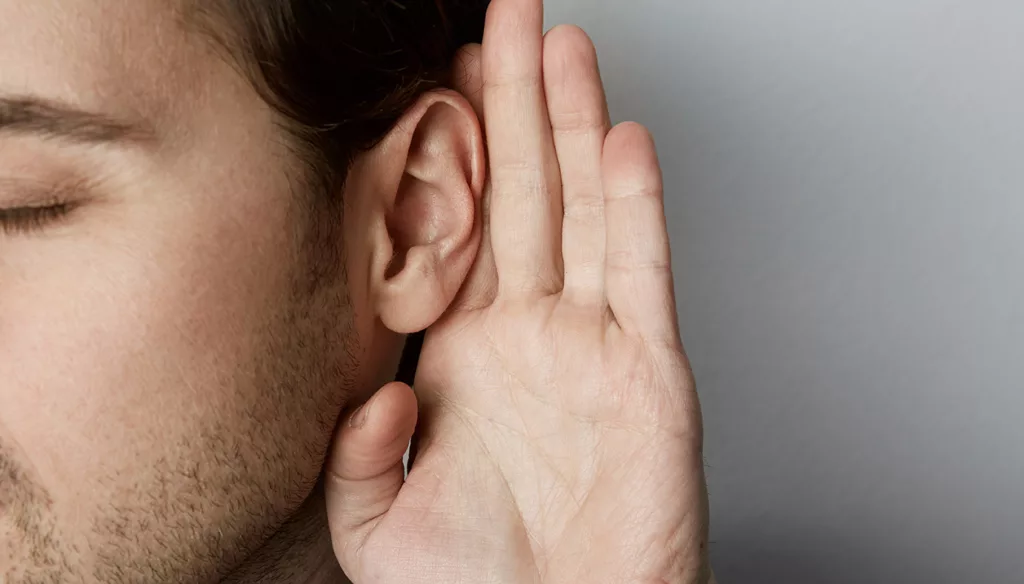Hearing Loss

About Course
Hearing Loss:
Hearing loss is a condition where there is a partial or total inability to hear sounds. It can affect one or both ears and may occur suddenly or gradually over time. Hearing loss is typically classified into three main types: sensorineural, conductive, and mixed hearing loss.
Types of Hearing Loss:
-
Sensorineural Hearing Loss:
- This is the most common type of permanent hearing loss and occurs when there is damage to the inner ear (cochlea) or the auditory nerve. It can result from age-related changes, loud noise exposure, head trauma, infections, or certain medications (ototoxic drugs).
- Symptoms: Difficulty hearing high-pitched sounds, understanding speech (especially in noisy environments), and reduced clarity in hearing.
- Treatment: While sensorineural hearing loss is usually permanent, treatments like hearing aids, cochlear implants, and speech therapy can help improve communication.
-
Conductive Hearing Loss:
- Conductive hearing loss occurs when there is a problem in the outer or middle ear that prevents sound waves from reaching the inner ear. This can be caused by ear infections, fluid buildup, earwax impaction, or damage to the eardrum or ossicles (tiny bones in the middle ear).
- Symptoms: Muffled or decreased hearing, ear fullness, and difficulty hearing low-pitched sounds.
- Treatment: Many causes of conductive hearing loss are treatable, such as removing earwax, draining fluid, or surgically repairing the eardrum or bones of the middle ear.
-
Mixed Hearing Loss:
- This type of hearing loss is a combination of both sensorineural and conductive hearing loss. It involves damage to both the inner ear and outer or middle ear.
- Symptoms: A mix of symptoms from both sensorineural and conductive hearing loss.
- Treatment: Treatment depends on the causes of both types of hearing loss and may include a combination of medical, surgical, or hearing aid solutions.
Causes of Hearing Loss:
- Age-related (Presbycusis): Gradual hearing loss due to the aging process, typically affecting higher frequencies first.
- Noise exposure: Prolonged exposure to loud noises (e.g., concerts, heavy machinery, headphones) can damage the hair cells in the inner ear.
- Ear infections: Infections like otitis media can cause temporary or permanent hearing loss if left untreated.
- Genetic factors: Some forms of hearing loss are hereditary and can be present at birth or develop later in life.
- Trauma: Physical damage to the ear or head can result in hearing loss.
- Medications: Certain medications, including chemotherapy drugs and high doses of aspirin, can be ototoxic and lead to hearing loss.
- Infections and diseases: Infections like mumps, meningitis, or conditions like diabetes can damage hearing structures.
Symptoms of Hearing Loss:
- Difficulty understanding speech, especially in noisy settings.
- Frequently asking people to repeat themselves.
- A feeling of fullness in the ear.
- Turning up the volume on devices like televisions or radios higher than usual.
- Tinnitus (ringing in the ears) may also accompany hearing loss.
Diagnosis and Treatment:
- Hearing tests (audiometry) are conducted to assess the degree and type of hearing loss.
- Hearing aids are commonly used to amplify sounds for those with sensorineural or mixed hearing loss.
- Cochlear implants may be recommended for severe sensorineural hearing loss when hearing aids are not effective.
- Surgical options may be available for conductive hearing loss, such as repairing the eardrum or correcting ossicle damage.
Prevention:
- Protecting the ears from loud noises (e.g., wearing earplugs) can help prevent noise-induced hearing loss.
- Regular hearing checkups can help detect hearing loss early, especially in older adults or those exposed to high-risk environments.
Hearing loss can significantly impact a person’s quality of life, but with early detection and appropriate management, most people with hearing loss can continue to communicate effectively and maintain an active lifestyle.
Course Content
How hearing loss occurs
-
Hearing Loss Causes
03:10 -
How hearing loss occurs
01:34
How to solve hearing loss
6-Month Ear Healing Diet Plan
6-Month Detailed Exercise Plan for Ear Health
White noise for sleeping
Sounds to heal your ears
Student Ratings & Reviews

No Review Yet